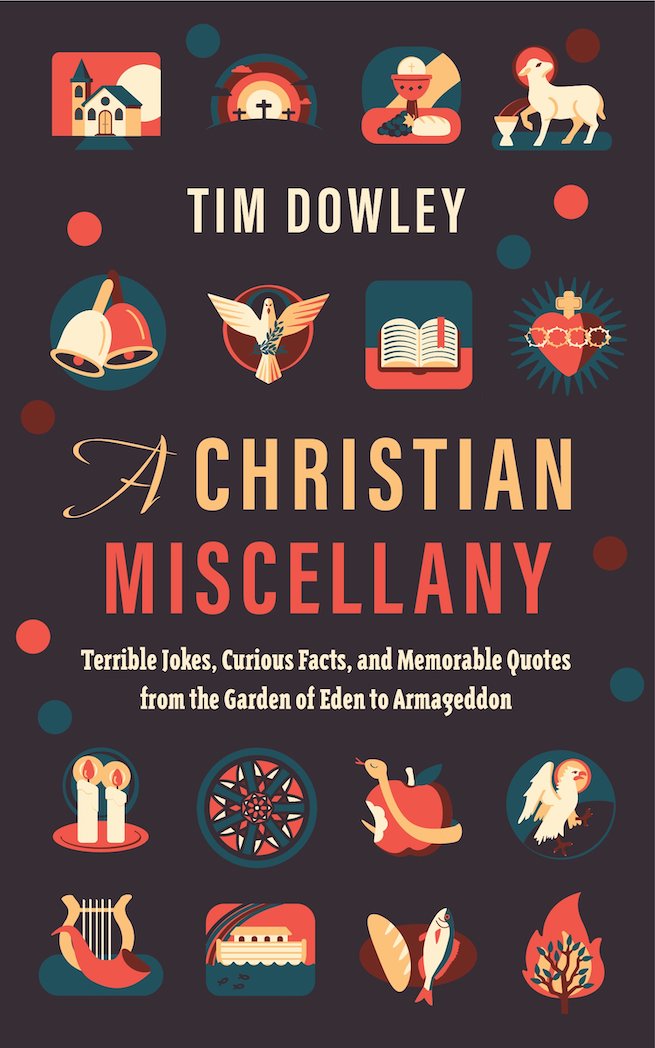“A Christian Miscellany: Terrible Jokes, Curious Facts and Memorable Quotes from the Garden of Eden to Armageddon” by Tim Dowley. Wm. B. Eerdmans Publishing (Grand Rapids, Michigan, 2022). 160 pp., $16.99.
As the word suggests, a “miscellany” is a book compiled from an assortment of writers and writings, loosely organized around a common theme.
More like a randomly organized almanac than an anthology, a miscellany can touch upon any number of subject areas without any attempt at organization or progression. On any given page the reader might find a story recounting the death of a martyr followed by a dumb joke. You never know what you might find.
Tim Dowley’s “A Christian Miscellany” is true to its title — and its subtitle: It is a collection of “terrible jokes, curious facts and memorable quotes.” This is a book the reader will thumb through when searching for an interesting quotation about dying or a listing of titles for the Holy Spirit. You will find both in this small book.
Thumbing through this book is about the only way you might find what you seek for it lacks an index, and the table of contents consists of three pages in small type listing in one continuous string of words and numbers a subject area and the page number on which it is found, followed immediately by the next subject area, not separated by punctuation of any kind. As previously noted, the subject matter follows no pattern or organization, so seek and see what you find.
Generally, the items the author decided to include are fitting or valuable or enjoyable. For example, under the heading “On Love,” the author includes a quotation from St. Catherine of Siena, one from Fyodor Dostoevsky’s “The Brothers Karamazov” and Bertrand Russell’s “The Impact of Science on Society.”
Unpacking the wisdom found in these three pieces alone might make for hours of enjoyable reflection. Occasionally, however, one encounters silly jokes (Noah’s wife was called Joan of Ark) or bad puns made in church bulletins.
There are valuable nuggets to mine here, so it is worth digging to find them. For example, on page 22 the author presents the poem “Little Lamb” by William Blake. On page 24, an excerpt of John Winthrop’s famous sermon about the city on a hill is offered, followed immediately by a listing of the 10 plagues of Egypt.
A few pages further there’s a presentation of the Serenity Prayer, which the author explains was “probably based” on a prayer crafted by Reinhold Niebuhr, which also is provided. To this morsel of interesting information, the author next adds an “anti-serenity prayer” and a “senility prayer,” neither attributed.
In the days before the internet and search engines, books such as “A Christian Miscellany” might be found on many bookshelves as a reference, such as Bartlett’s “Book of Quotations.” Today, people tend to do an electronic search to find a list of popes who may have been murdered or 10 important archaeological finds related to the Bible.
But the problem with any internet search is one must know the appropriate search terms in order to find something of interest. That’s the value of what Dowley provides here: He has asked the questions and done the searching for you. That’s reason enough to give this interesting little book a spot on your reading table.
Mulhall writes from Louisville, Kentucky.

